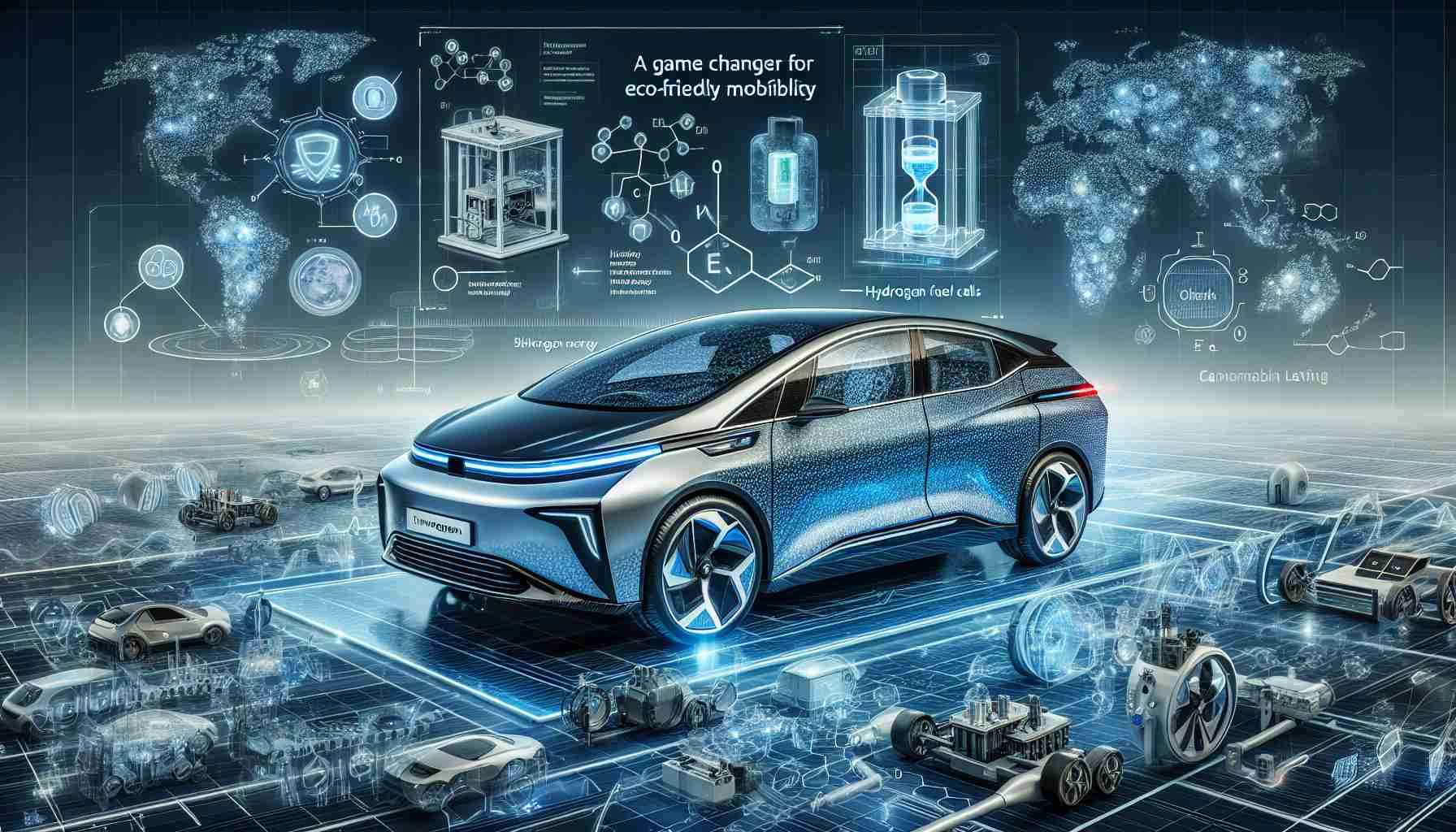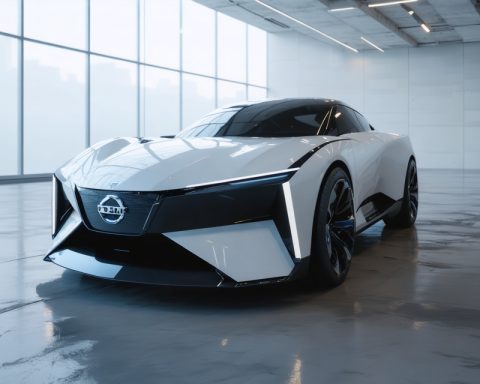Groundbreaking Partnership for Hydrogen-Powered Vehicles
In a pioneering move for the automotive industry, South Korea’s KG Mobility Corporation (KGM) has forged a partnership with Phinia Delphi France SA to develop an innovative hydrogen-powered light vehicle engine. This collaboration is part of a larger initiative backed by the South Korean government and includes the Korea Automotive Technology Institute, focusing on creating a cost-effective hydrogen engine.
The agreement was formalized at KGM’s research hub in Pyeongtaek, located just south of Seoul, where both companies will leverage their strengths to enhance vehicle technology. The main objective is to engineer a hydrogen internal combustion engine (ICE) that utilizes an existing KGM 2L diesel engine as a foundation. The end goal is to create a hydrogen-powered light multi-purpose utility vehicle that meets modern environmental standards.
Phinia Delphi will bring its advanced knowledge in fuel-injection and electronic control unit (ECU) systems to the table, while KGM will share its proprietary diesel engine innovations. This dynamic partnership aims to break ground in alternative fuel vehicle markets, emphasizing eco-friendly solutions for the automotive landscape.
Previously operating under the name Ssangyong Motor, KGM was acquired by a consortium led by KG Group in late 2022 and has significant global sales, primarily in the SUV segment, having sold over 109,000 units last year.
Broader Impacts of Hydrogen-Powered Vehicles
The advent of hydrogen-powered vehicles marks a critical juncture for both the automotive industry and environmental sustainability. As countries worldwide grapple with climate change, this technology has the potential to substantially reduce carbon emissions, pivoting society toward greener alternatives. Moreover, the collaboration between KGM and Phinia Delphi is reflective of a broader shift in how industries are innovating to stay competitive in an increasingly eco-conscious market.
This partnership could transform cultural perceptions of vehicle propulsion. Hydrogen, often viewed as a fringe alternative, is gaining traction as an economically viable option in the push for sustainability. As companies like KGM take the lead, public acceptance and demand for hydrogen technologies may rise, influencing consumer behavior to favor greener options.
The economic implications are significant; investing in hydrogen technology may spur job creation in research, production, and maintenance sectors, reinforcing hydrogen as a cornerstone of the future economy. As nations prioritize renewable energy, countries rich in hydrogen resources could emerge as global leaders, affecting international relations and trade dynamics.
On an environmental scale, the implications are clear: hydrogen engines produce only water vapor as emissions, representing a radical departure from traditional fossil fuels. While the long-term viability of hydrogen production—particularly focusing on sustainable methods like electrolysis—remains a concern, advancements here could significantly alter our ecological footprint.
In conclusion, the evolution of hydrogen-powered vehicles not only promises to reshape the automotive industry but also heralds a transformation in societal norms, economic structures, and environmental strategies. As we look ahead, the collaborative efforts showcased by KGM and Phinia Delphi may well define the transportation landscape for generations to come.
Transforming the Future: The Rise of Hydrogen-Powered Vehicles
Groundbreaking Partnership for Hydrogen-Powered Vehicles
In an exciting development for the automotive industry, South Korea’s KG Mobility Corporation (KGM) has announced a strategic partnership with Phinia Delphi France SA. This collaboration is focused on the innovative development of hydrogen-powered light vehicle engines, marking a significant step forward in alternative fuel technologies. This initiative is supported by the South Korean government and the Korea Automotive Technology Institute, emphasizing the urgent need for sustainable and eco-friendly automotive solutions.
Key Features of the Partnership
– Hydrogen Internal Combustion Engine (ICE): The primary goal of this collaboration is to engineer a hydrogen ICE, utilizing KGM’s existing 2L diesel engine as the foundation. This design will aim to provide efficient power while reducing environmental impact.
– Advanced Technologies: Phinia Delphi will contribute its expertise in fuel injection and electronic control units (ECUs), enhancing the performance and efficiency of the new engine. KGM will leverage its proprietary diesel engine innovations, ensuring a smooth transition to hydrogen technology.
Pros and Cons of Hydrogen-Powered Vehicles
– Pros:
– Lower Emissions: Hydrogen vehicles emit only water vapor, significantly reducing harmful pollutants.
– Renewable Energy Potential: Hydrogen can be produced using renewable resources, promoting energy sustainability.
– Rapid Refueling: Similar to gasoline cars, hydrogen vehicles can be refueled swiftly, offering convenience for consumers.
– Cons:
– Infrastructure Challenges: A lack of hydrogen refueling stations can hinder the widespread adoption of hydrogen vehicles.
– Cost of Production: Although hydrogen engines promise cost-effectiveness, the initial investment in technology and infrastructure remains high.
Use Cases and Market Analysis
As the automotive industry shifts towards green technologies, hydrogen-powered vehicles are positioned to play a vital role, particularly in the following sectors:
– Public Transportation: Hydrogen buses and utility vehicles can substantially reduce emissions in urban settings.
– Long-Distance Freight: For logistics and transportation, hydrogen can offer an efficient alternative to traditional diesel engines.
Market analysts predict that as governments worldwide enforce stricter emissions regulations, the demand for hydrogen-powered vehicles is likely to increase in the coming years, making this partnership between KGM and Phinia Delphi timely and strategic.
Sustainability Insights
This partnership not only aims to innovate vehicle technology but also to contribute to global sustainability goals. Developing hydrogen technology aligns with international efforts to reduce greenhouse gas emissions and transition to renewable energy sources. As companies invest in cleaner alternatives, the automotive industry is set to transform significantly in the next few decades.
Pricing and Predictions
While specific pricing details for the hydrogen-powered vehicles are yet to be revealed, market trends indicate that as hydrogen technology matures and economies of scale are achieved, the costs will decrease, making them more accessible to consumers. Industry experts suggest that by the mid-2030s, hydrogen vehicles could see substantial market penetration supported by improved infrastructure and government incentives.
In conclusion, the partnership between KGM and Phinia Delphi is a testament to the automotive industry’s commitment to sustainability and innovation. As they work towards a common goal of creating efficient hydrogen engines, the future of transportation may well become eco-friendlier than ever.
For more details on automotive trends and advancements, visit KG Mobility.















